Introduction
When many people apply for a credit card, whether it is a MasterCard or a Visa, they are usually concerned with the rewards, fees, or interest rate. However, there is one important factor that people often overlook: the credit bureau associated with the card they are applying for. This is a detail that can alter your credit strategy and the health of your finances considerably.
Whenever you apply for and obtain credit using a credit card, the issuer gets to make a hard pull on your credit report using one of the three major bureaus: Experian, Equifax, or TransUnion. These inquiries usually do not cause much of an impact on your credit but in the case of several hard requests on various bureaus, the impact can be cumulative, and your score would be lowered much more than it would actually need to be.
Interestingly, there are certain business and personal credit card that pulls Experian only. To experienced borrowers, this is an advantage to focus credit checks strategically on the best credit bureau report, which may enhance chances of approval and credit score stability.
At the end, I will provide you with actionable information as to how you can streamline the process of making credit card applications and developing your credit profile.
Understanding Credit Checks and Credit Bureaus
What Does It Mean When a Credit Card “Pulls” Your Credit?
A hard inquiry (or hard pull) on your credit report is done when you apply to obtain a credit card, reducing your credit score. This request gives the lender all the details of your credit history, then history of payments and current debts, and the use of credits.
In contrast to a soft inquiry, which comes into being when you access your personal credit or experience prequalification, and which does not affect your credit rating, a considerable drop in credit rating could be seen due to hard inquiry, where it could go down by some few points, but only temporarily. Frequent hard inquiries during the shortest time may represent greater risk to lenders.
The Three Major Credit Bureaus
Three entities exist that gather and retain the credit information about consumers:
- Experian: Experian is often utilized by lenders, as it has highly detailed consumer reports, which makes it trusted and the most popular.
- Equifax: Equifax is another large corporation popular in the automobile and mortgage loan business.
- TransUnion: Commonly adopted in personal lending, and it is often preferred in credit observing services.
All the bureaus can contain slightly different information about you because of different data sources and the time they refer to.
Why Do Lenders Choose Specific Bureaus?
Credit card issuers make their decisions to pull which bureau based on several factors:
- Regional preferences: In certain states, there is a concentration of lenders pulling Experian because there is a better coverage of data.
- Partnership deals: Some of the bureaus might be in cooperation or give the data at lower prices.
- Data reliability: Lenders want to use bureaus that update and deliver reliable and accurate data on which to base their lending decisions.
Hard Inquiries vs. Soft Inquiries: What’s the Difference?
- Hard inquiry: is conducted during the time of taking a new credit. May cause a temporary decrease in your credit score.
- Soft inquiry: Occurs when prequalification information or credit surveillance is requested, and does not affect score.
How does a credit card that pulls Experian only impact you?
When a credit card pulls solely at Experian, your credit pull will be focused just in your Experian credit profile. This means:
- That inquiry cannot be found on your Equifax and TransUnion reports.
- This helps to keep your approval odds higher in case Experian is the strongest bureau.
- By having control over where the credit inquiries can be seen you are able to manage credit inquiries better.
This plan of action can come in handy, especially when you would like to have fewer hard inquiries based on a variety of reports, which might portray a better picture to the lender window shopping around in the various reports.
Why Consider Business Credit Card That Pulls Experian Only?
Unique Benefits for Entrepreneurs and Small Business Owners
It is extremely important that entrepreneurs should be able to manage business credit profile and their personal credit profile. Pulling Experian with business credit card applications provides only a few of the main benefits:
- It protects personal credit: most business cards are funded with a personal guarantee and a hard pull on the personal credit, limiting the pull to Experian will keep the Equifax and TransUnion profiles free of inquiries so their credit check activity is not spread.
- Establishes business credit independently: certain business cards will only report on business credit agencies such as Experian Business or Dun & Bradstell, enabling creation of excellent business credit accounts that will not affect your personal credit.
- Selective use of credit: You might get more of your applications approved by limiting your applications to cards that use Experian to report your credit when you have stronger or cleaner reports on that bureau than Equifax or TransUnion.
How Experian-Only Pulls Impact Your Personal Credit Score
Most business cards need personal guarantees and run personal credit checks but narrowing inquiries to only Experian can consolidate the number of times Equifax or TransUnion receives a hard inquiry, thereby keeping scores higher across the bureau.
This proves to be especially useful in case you need to apply to several new credits in a short term.
Strategic Benefits of Business Credit Cards Pulling Experian Only
- Focusing inquiries: Assists to keep inquiries focused.
- Better chances of approvals: The cards have better chance of being approved in the event they are pulled out of the strongest bureau.
- Makes credit monitoring easy: fewer dispersed actions in credit transactions.
Best Business Credit Card That Pull Experian Only
Note: Credit bureau pulls can sometimes vary by region or card version; always confirm before applying.
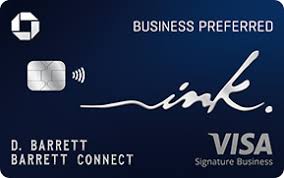
- Rewards: 3x points on travel, shipping, internet, cable, and phone services.
- Annual Fee: $95.
- Pros: Generous sign-up bonus, premium business perks.
- Cons: Requires excellent credit.
This popular business card is known for mostly pulling Experian. It’s an excellent choice if you want travel rewards combined with business spending benefits.
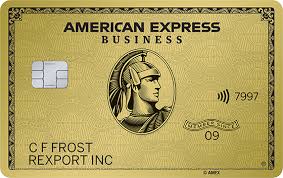
- Rewards: 4x points on your top 2 categories of business spending.
- Annual Fee: $375.
- Pros: High flexibility, premium business travel benefits.
- Cons: High annual fee.
Amex business cards commonly pull Experian, especially for business credit applications, and offer strong rewards for big spenders.
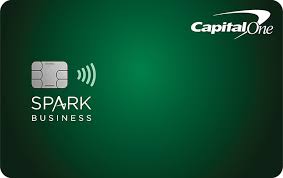
- Rewards: Unlimited 2% cash back.
- Annual Fee: $150.
- Pros: Flat-rate cash back, simple earning structure.
- Cons: Requires strong credit profile, preferably on Experian.
Capital One is often associated with Experian pulls, making their Spark cards attractive for managing inquiries.
Best Personal Credit Cards That Pull Experian Only
If your Experian credit profile is your strongest, consider these cards to leverage that advantage:
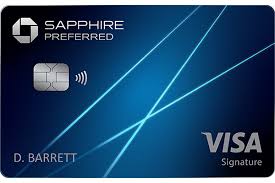
- Rewards: 2x points on travel and dining.
- Annual Fee: $95.
- Pros: Strong travel benefits, flexible redemption options.
- Cons: Requires good to excellent credit.
Chase cards typically pull Experian, so this card is a great pick for those with good Experian scores.
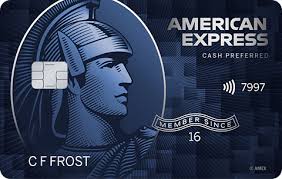
- Rewards: 6% cash back on groceries and streaming.
- Annual Fee: $95.
- Pros: Excellent cash-back categories for families.
- Cons: Annual fee after the first year.
Amex frequently pulls from Experian and offers robust rewards for everyday spending.

- Rewards: 5% cash back on rotating quarterly categories.
- Annual Fee: $0.
- Pros: Cashback match during first year.
- Cons: Requires tracking rotating categories.
Discover is known for pulling Experian, making it a top no-fee card with rotating bonuses.
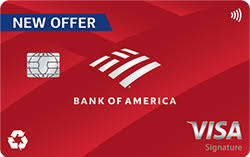
- Rewards: 3% cash back in chosen category.
- Annual Fee: $0.
- Pros: Personalized rewards categories.
- Cons: Lower caps compared to premium cards.
Bank of America cards generally pull Experian, letting you build rewards and credit in a flexible way.
How to Confirm Which Credit Bureau a Card Pulls From
When issuers want to access one of the bureaus, they normally do not openly disclose which of the bureaus they are accessing, so that is how you can find out:
- Other forms of research Research using Online Credit Forums and Communities
MyFICO, r/creditcards on Reddit, and credit blogs have prolific user bases that detail their recent history of issuer credit pulls. Such lived-in descriptions by users can be gold mines of information.
- Contact the Customer Service of the directly.
Pick up the phone and call the customer service number of the card issuer and inquire, in a polite manner, which credit bureau they pull when processing new credit card accounts. They either can give a direct answer or lead you.
- Overview State-Based Trends
Certain lenders draw information according to the bureau in which you live. See whether there are trends by scouting local forums or websites.
- Apply Prequalification/Preapproval Tools
Soft pulls. Many card issuers perform prequalification checks, which typically involve soft pulls, usually through Experian. Although these do not necessitate a hard pull bureau, they may give a hint as to the preferred bureau of the issuer.
FAQs About Credit Card Companies That Pull Experian Only
Q1: What credit cards pull from Experian only?
Chase, American Express, Capital One, Discover, and Bank of America are some of the cards being extensively reported with type Experian being pulled (personal and business credit cards).
Q2: How does Experian-only pulling impact my credit?
This implies your hard inquiries will be focused on a single credit bureau report, and your report with Equifax and TransUnion will remain an inquiry-free report. This strategy will aid in maintaining your credit rating at the bureau and restraining hard inquiries that may appear on more than one report.
Q3: Are there any downsides?
Yes, pulling only Experian would decrease approval opportunity in case your Experian report is worse or has more hit marks compared to the rest of the reports. One should also apply where his/her credit profile is best.
Q4: Can I change which bureau an issuer pulls from?
No. This depends on the issuer and their policies, their relationships with the various bureaus, and, in some cases, your address. The consumer has no choice in the selection of a credit bureau.
Conclusion
It is increasingly more important in 2025 to have the credit card scene seen through the lens of strategy.
Choosing Experian-pulling business and personal credit cards has only one strong advantage:
- It will enable you to direct the tough questions to the strongest of your credit bureaus.
- Aids in preventing the effect of multiple searches of other credit profiles.
- Dents your likelihood of approvals, especially when Experian presents you in your best light.
Before application, one should always:
- Validate and verify the bureau that a card issuer draws upon.
- Take your best credit report.
- You should watch your credit at all three bureaus.
- Smart planning of your applications helps to ensure the maximum of the desired outcomes and the minimum of the undesired ones.
By working methodically through your credit applications using Experian-only drawing cards, you can maximize your credit health and be well on your way to establishing a sound financial footing for yourself on the path of business and personal development.
